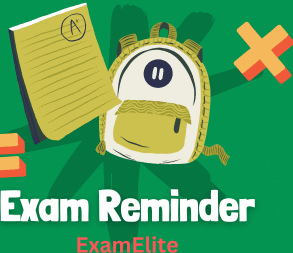Is a career in tax representation something you’re considering?
If that’s the case, being an Enrolled Agent (EA) can be a good fit for you.
A must-have for each EA aspirant is a passing score on the Enrolled Agent Exam, often called the Special Enrollment Examination (SEE).
With search engine optimization (SEO) best practices in mind, this book provides a thorough introduction to the EA examination, covering all the bases: eligibility requirements, exam structure, registration processes, and pass tactics.
What Is the Enrolled Agent Test?
The three-part Enrolled Agent Exam is administered by Prometric Testing Services and the IRS.
Its purpose is to test your knowledge of US tax law and your ability to defend taxpayers in IRS proceedings.
If you pass this exam, the IRS will recognize you as an Enrolled Agent, their highest level of accreditation for tax professionals.
Any taxpayer may consult with an enrolled agent at any IRS office on any tax issue, and the agent’s practice authority is unfettered.
This sets EAs apart from other professionals who may face license limitations, such as attorneys and certified public accountants.
Examining Enrolled Agents: What Makes It Apt?
Here are a few compelling reasons to take the EA test:
-
Promoting One’s Career: EAs have a lot of respect in the tax field.
-
Possessing a federal tax professional license gives you the authority to represent clients in any of the fifty states.
-
Work for a tax firm, go it alone, or start your own business—the options are endless when it comes to flexible practice.
-
Because of their expertise in tax matters, EAs are often preferred over CPAs when clients need assistance with their tax returns.
Needed Skills for the Enrolled Agent Test
Unlike other professional exams, the Enrolled Agent Exam does not need a bachelor’s degree or work experience.
To be an EA, however, you were need to:
-
In order to prepare tax returns, you need to have a PTIN.
-
Get an EA passing score in no more than two years.
-
Make it through the eligibility process, which involves a background check with the IRS.
Exam Framework for Registered Agents
The three parts of the Enrolled Agent Exam cover different areas of federal taxes:
Chapter 1: Individuals
Topics such as these are covered in this section:
-
Income, assets
-
Deductions and credits
-
Personal income tax
-
Getting your taxes ready
Section 2: Companies
Discusses subjects such as:
-
Types of business entities
-
Income, expenditures, and assets of the company
-
Accounting procedures
-
Taxation on employment and other types of taxation
Chapter 3: Methods, Policies, and Representation
In this part, we will test your knowledge of:
-
Prepare to meet with the IRS
-
Proprietary authority and client rights
-
Audit and appeal processes
-
IRS policies and practices
There are 100 multiple-choice questions spread out over three and a half hours in each exam session.
Instructions for Getting Enrolled in the Agent Exam
Every month of the year (with the exception of March and April), the EA exam is administered by Prometric testing centers.
Following these steps will allow you to register:
-
You may apply for a Preparer Tax Identification Number (PTIN) online at the IRS website.
-
Step 1: Sign up for an account by going to the Prometric website.
-
The test has to be set up: Choose your preferred exam date and administration site.
-
Exam Fee: As of 2025, the fee for each component of the EA exam is $206.
After you’ve finished all three parts, you may apply for enrollment using Form 23 on the IRS website.
Exam Outcomes and Point Totals for the EA
The EA exam has a scaled scoring system that allows scores to vary from 40 to 130.
Any score equal to or more than 105 is considered passing.
In the event that you did not pass, your score report will include your performance in each of the specified areas along with your overall passing or failing grade.
You are allowed to take any failed section as much as four times throughout a test year (May 1–February 28/29).
Ways to Get Ready for the Enrolled Agent Test
Passing the EA exam requires dedication and thorough preparation.
If you want to be successful, here are a few tried-and-true methods:
1. Choose the Right Study Aids
A number of companies offer courses to help students prepare for the EA test.
These include Gleim, Surgent, Fast Forward Academy, and Becker. Determine which courses include:
-
Comprehensive course materials
-
Online classes
-
Interactive assessments
-
Sample exams
-
Performance tracking
2. Follow a Scheduled Study Routine
Break up your study time into smaller chunks that you can handle better.
Give yourself at least three or four months for each part, depending on your schedule and level of tax experience.
3. Practice on Real Questions
Practice tests with question formats and structures that are similar to the actual exam could help you adjust to its format and style.
4. Understand Tax Laws
Just memorization won’t cut it.
The ways in which various pieces of law impact various situations should be on your radar.
5. Take Advantage of IRS Tools
Many of the questions on the EA test are based on the free publications and recommendations provided by the IRS. Learn the ropes of:
-
For individuals, see IRS Publication 17
-
Form 334, Income Tax: Small Business
-
Circular 230 (ethics and procedures)
Should You Become a Certified Public Accountant or an Enrolled Agent?
If you are trying to decide between becoming an enrolled agent and a certified public accountant, here are some things to think about:
| One of its characteristics | Specialization for CPAs in Agent Enrollment |
|---|---|
| Financial and auditing | Federal tax broker |
| Challenges to the Practice | Rights of State Boards of Accountancy |
| Before the IRS | The next three parts |
| Distinct parts | The Duration of Your License |
| Several months | Extensive time (including formal education) |
If becoming a tax expert is your top priority, earning the Enrolled Agent certification may be the best and most cost-effective way to do it.
Continuing Education for Enrolled Agents
After becoming an enrolled agent, you must maintain your EA certificate current via continuing education (CE).
Requests from the IRS:
-
Professional development for three years at a minimum of 72 hours
-
In a year, no less than sixteen
-
Minimum required annual ethics training: two hours
An authorized CE provider list is available on the IRS website.
Typical Mistakes to Avoid
The application process is fraught with wasted time and money for many candidates.
Avoid these things at all costs:
-
Prior to this, while cramming
-
Ignoring tax documents
-
Taking long breaks between each part of the exam
-
Ignoring the rules set out by the testing facility
-
Choosing not to pay for tests
Does an Enrolled Agent Need to Pass a Difficult Exam?
The passing rate for the EA exam ranges from 60% to 70% across different sections.
But although being shorter and cheaper than the CPA exam, it is nonetheless challenging and demands an in-depth understanding of tax law.
Helpful Hints to Improve Your Probability:
-
Maintain a systematic study routine
-
The second part, “Businesses,” is the most challenging, so give it your whole attention
-
Do practice tests often
-
Review the incorrect answers thoroughly
Final Thoughts
After you pass the Enrolled Agent Exam, you will be well on your way to a rewarding and flexible career in taxation.
Whether you’re just starting out or are an experienced tax preparation looking to advance in your career, the EA certification may open doors in several areas.
If you put in the time and effort, create a study schedule, and buy into it, you have a shot at passing the EA exam and joining the exclusive group of federally-authorized tax professionals.
Be prepared to start your career by getting your PTIN, creating a study plan, and passing the Enrolled Agent Exam.
